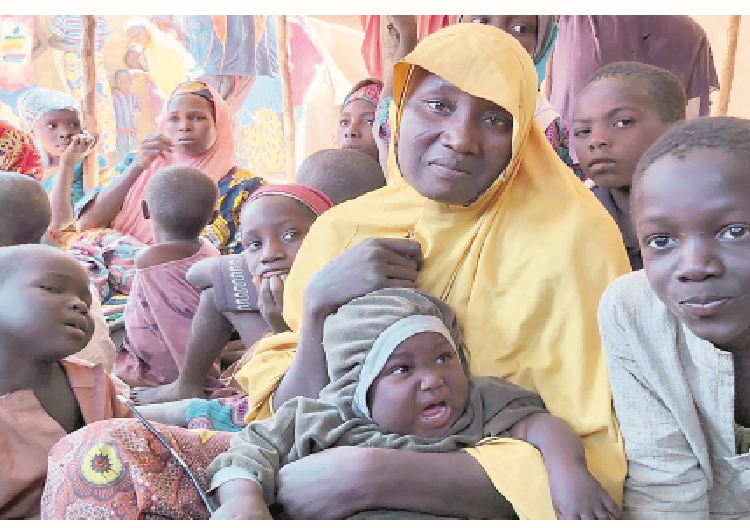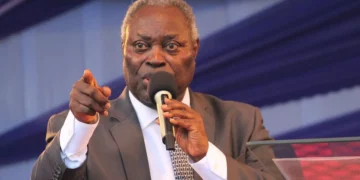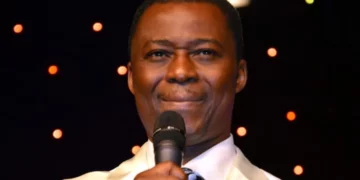Every Nigerian citizen, whether rich or poor is groaning! Every sector of the nation is in dire straits. The business sector is dwindling, people are getting laid off work and destitution is growing at an alarming rate!
The citizenry is not smiling at all. The anomy has massive multiplier effect on security, food production, education and governance itself.
And these must be addressed because there is a socially relevant adage that says a hungry man is an angry man. The cities are filling to overflowing because the rural areas are not only bereft of services, but they are now at the mercy of merciless non state purveyors of violence which government seems incapable of containing for now.
Clearly, you have heard it said severally recently that Nigeria is on life support, and thus, needs urgent resuscitation before things really get out of hand. Those who say that the country is on life support have grounds to say so. They cite the terrible economic indices for Nigeria, including the fact that the cost of debt servicing, for the first four months of this year, have exceeded revenue earned. This is also at a time the Federal Government has said it would spend N6.7trillion on fuel subsidy in 2023. This was disclosed by the Minister of Finance, Budget and National Planning, Mrs Zainab Ahmed, at the public consultation on the draft 2023 – 2025 Medium Term Fiscal Framework/Fiscal Strategy Paper (MTFF/FSP) recently in Abuja. In the overview of the fiscal performance for the first quarter of 2022, Mrs Ahmed pointed out that the Federal Government’s total revenue for the period was N1.63 trillion, while debt servicing gulped N1.94 trillion. She added that urgent action was needed to address revenue underperformance and expenditure inefficiency at national and sub-national levels. According to the MTEF document, the Federal Government’s share of oil revenues was N285.38 billion (representing 39 percent performance), while non-oil tax revenues totalled N632.56 billion, a performance of 84 per cent. The NNPC Limited is allegedly not remitting money to the federation account, as
a result the quantum of the money shared by the three tiers of government has dropped significantly with dire consequences for the people in local areas, state and federal government.
Airlines are threatening to pull out of Nigeria because they are not allowed to remit dollars earned. Emirate Airlines was the first to announce intention to pull out of Nigeria because of over $95million funds belonging to the airline that is trapped or withheld. Sensing the huge negative implication on the economy if more airlines desert Nigeria, the CBN just released $265 million to foreign airlines operating in the country for the remittance of part of their revenues trapped in the country. Not a few foreign airlines had raised the alarm over their inability to remit their revenues in Nigeria totaling about $450 million, forcing Emirates Airlines to announce its planned suspension of all flights to Nigeria from September 1, 2022 over its stuck $95 million. These are signs that all is not well with the economy. How sustainable the action of the CBN will be remains to be seen amid dwindling revenue, especially as Nigeria is unable to meet its Organisation of Petroleum Exporting Countries (OPEC) quota.
The Minister of State for Petroleum Resources, Chief Timipre Sylva, announced recently that Nigeria was not meeting its Organisation of Petroleum Exporting Countries, OPEC, production quota due to oil theft. Sylva, who led a federal government delegation on anti-oil theft to Governor Ifeanyi Okowa of Delta State, said the team was in Asaba to seek the support and buy-in of the state government on measures to be adopted to check oil-theft in the country. And Nigeria depends on dollars earned from oil to fund its budget. At a time when the rest of the OPEC countries are enjoying windfall from high cost of oil in the international market, Nigeria is the only country that is not smiling. Indeed, things have gotten worse as the price of refined fuel has gone beyond the government’s regulated price and other derivatives like gas and diesel have also hit the roof coupled with high cost of goods (both local and foreign), Nigerians are suffering, big time.
The consumer price index (CPI), which measures the rate of change in prices of goods and services, surged to 19.64 percent in July 2022, up from 18.60 percent in the previous month. The rate is the highest recorded since September 2005. The National Bureau of Statistics (NBS) said this recently in its consumer price index (CPI) report for July 2022. The figure is also 2.27 percent points higher compared to the rate recorded in July 2021, which was 17.38 percent.
As the economy tanks, crimes and criminality are soaring because the people, especially young people have no jobs. The country’s unemployment rate is 35 per cent and experts say no economy can grow under such a huge unemployment burden. How can the country be saved from not dying? The answer lies in the prioritizing of the citizens welfare.
Section 13-14 of the Nigerian Constitution 1999, as amended, states that the security and welfare of the people SHALL be the primary purpose of government and the participation by the people in their government shall be insured in accordance with the provisions of the constitution (emphasis mine). Those running government have failed to implement these sections of the constitution thereby alienating the people who were left to wallow in poverty while government officials, their family members and cronies grab the resources of the state for themselves. The result is a society that has returned to the state of nature where life is solitary, poor, nasty, brutish and short like Thomas Hobbes observed.
The important reason for state creation is for the security of life and property. Thomas Hobbes is of the view that the social contract between individuals and the state is for security of interests of those that make up the state. It is therefore the duty of the government to secure the life and property of individuals and the state. The security of life and property is paramount for the existence of the state. It is the responsibility of the government to create agencies like the police, army and state security service for the protection of the state. Government is responsible for the provision of the materials and gadgets necessary for protection of the state. The provision of equipment and personnel for security of state property and life is fundamental in state formation. The protection of life and property implies that the citizens would move about without fear, intimidation or attack.
The provision of welfare is a duty and responsibility a constituted authority owes their citizens. Welfare of the citizens means that it is the duty of the government to provide employment for its citizens.
The government has the duty of providing the citizens with goods health facilities, road network, pipe borne water, schools, recreational parks, communication network etc. Responsive government is expected to take care of the young and old, the sick, underprivileged children in our society. It is the duty of the government to provide the enabling environment for political activities to flourish.
The duty of Nigerian government is to promote understanding between various groups in Nigeria society. The promotion of national integration and prohibition of discrimination are essential duty of government. The government is duty bound to provide an efficient dynamic and self-reliant economy. It has to harness the national recourse for the benefit of the country and control national economy to ensure maximum welfare of the citizens and reduce the concentration of wealth on few hands.
If government does its part, the citizens will be duty bound to do their part and the country will be a better place for all. The police and government officials concerned about the burgeoning insecurity in the country in their public awareness campaign keep saying to Nigerians “If you see something, say something,” as a way to fight crime, yet crime and criminality is on the increase.
This is because the public feel they have nothing to lose and does not want to give information to security agents that represent the same government that had abandoned them in poverty, hunger and starvation. They would rather shield the militants vandalizing oil pipelines in Niger Delta or bandits terrorizing their communities in Katsina and Zamfara, than give information to the security agents. This attitude can be checked by government prioritizing the wellbeing of the people.
And as the country prepares for next year’s election, it is up to Nigerians to elect leaders that will prioritize their welfare or get stuck in the circle of poverty and deprivation, while the economy keeps deteriorating.
MAY NIGERIA REBOUND











